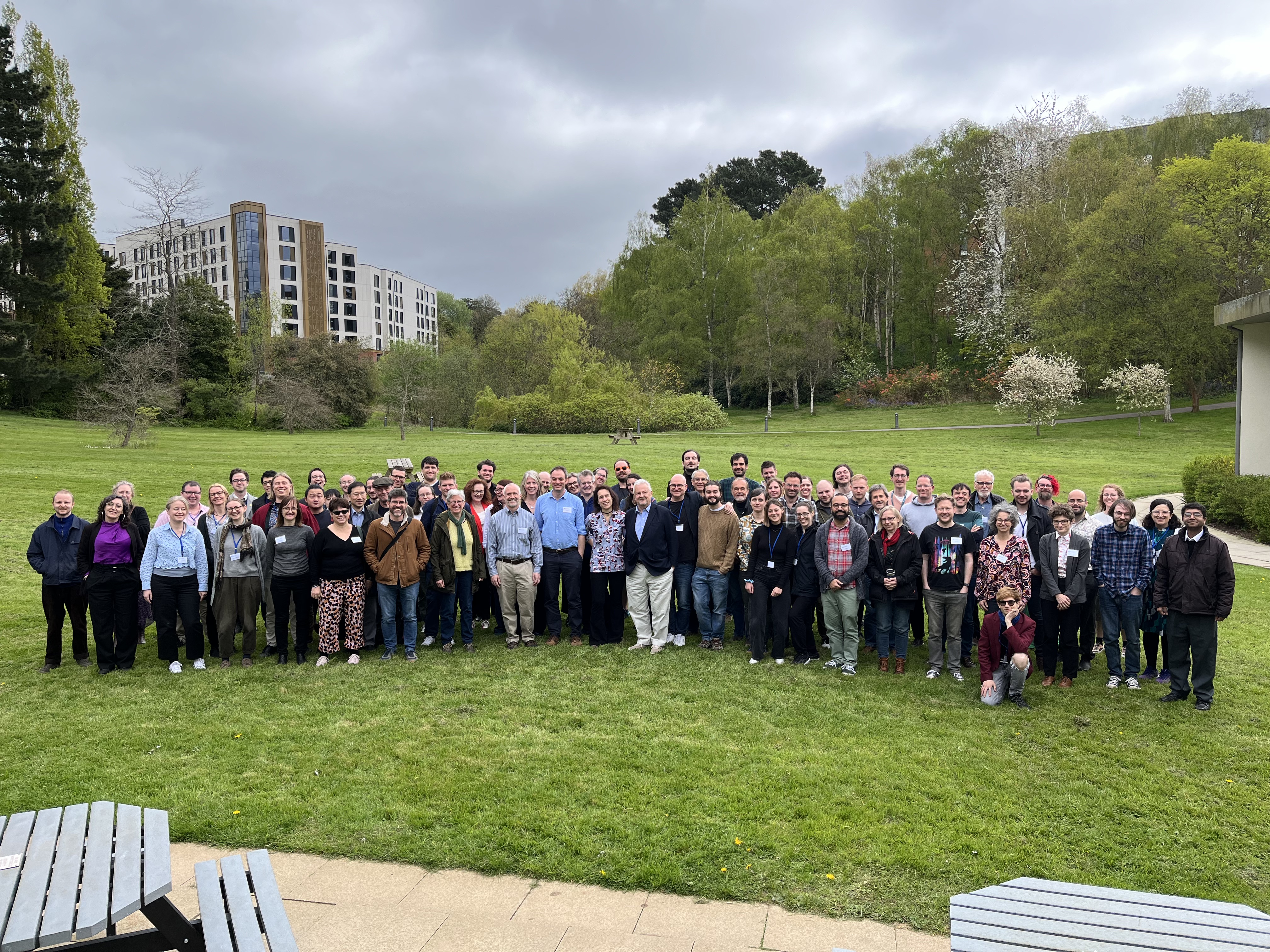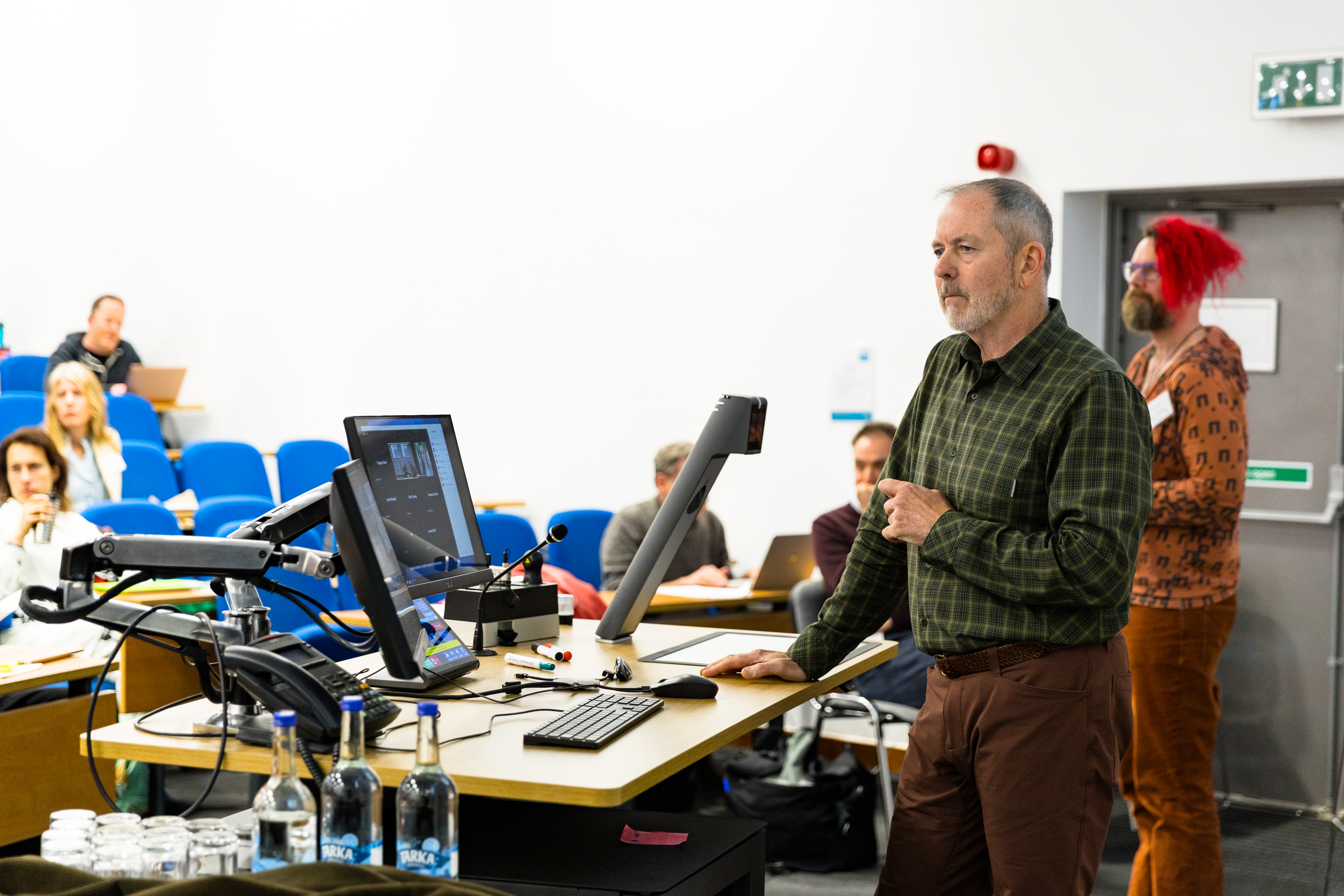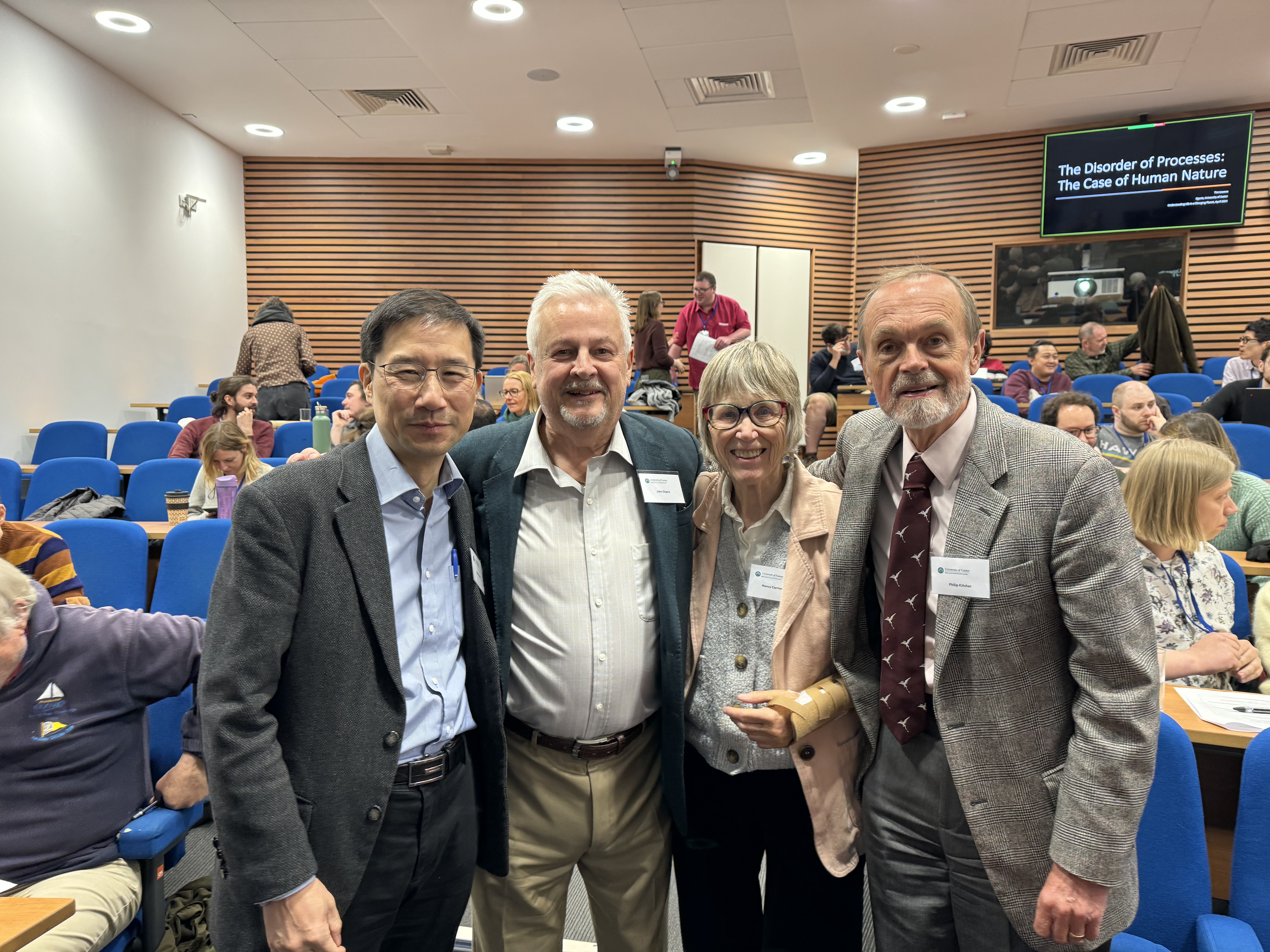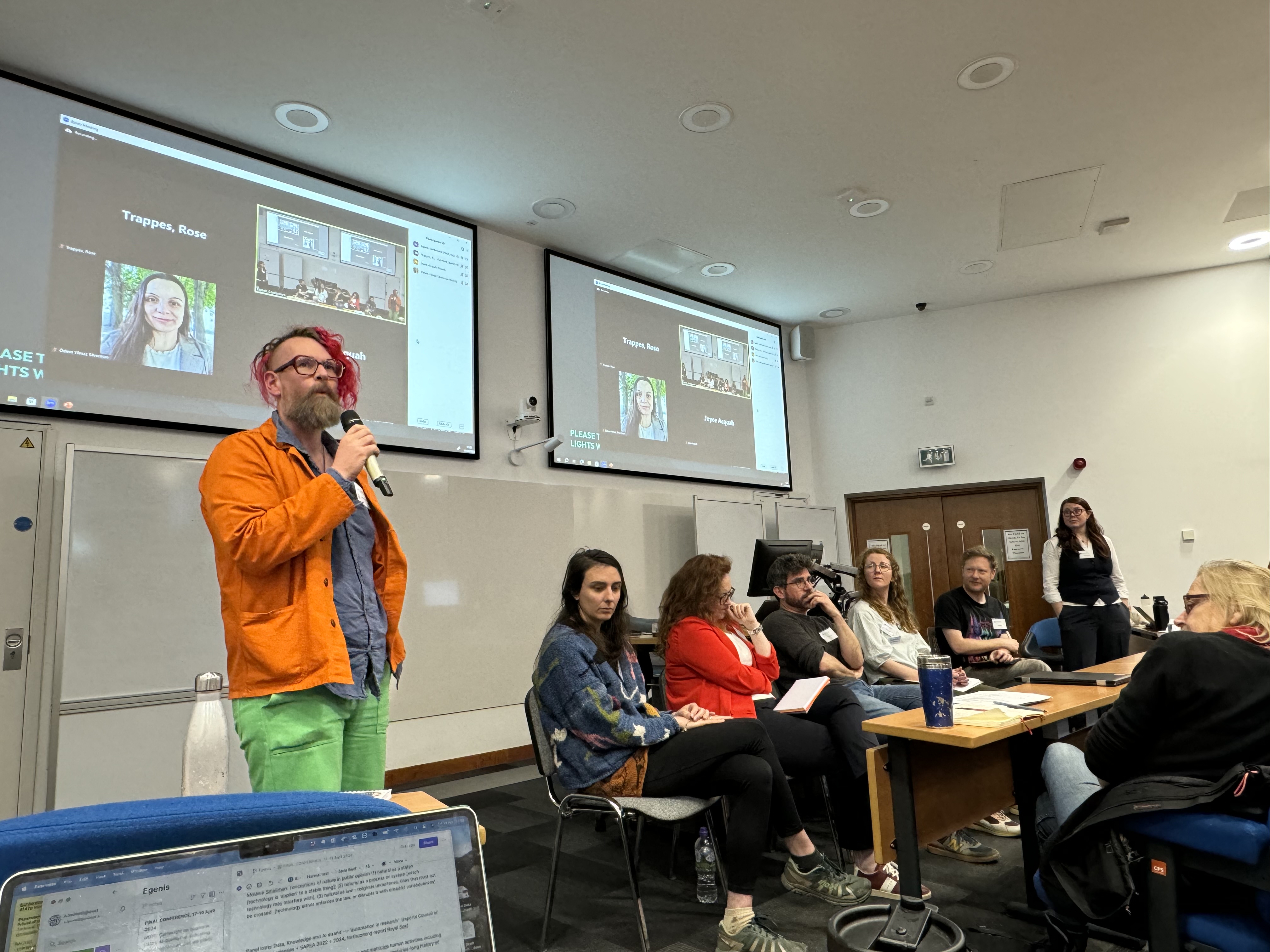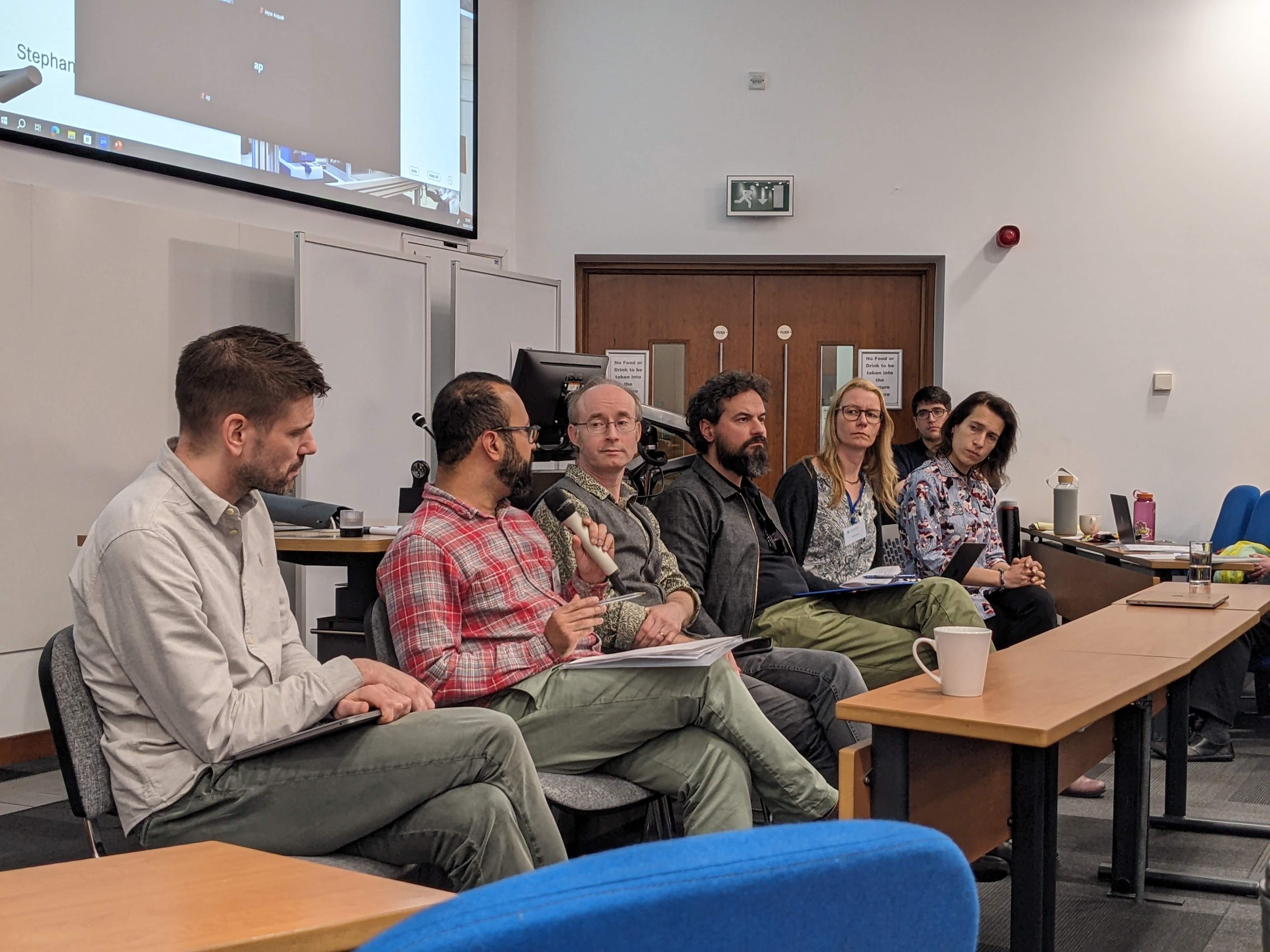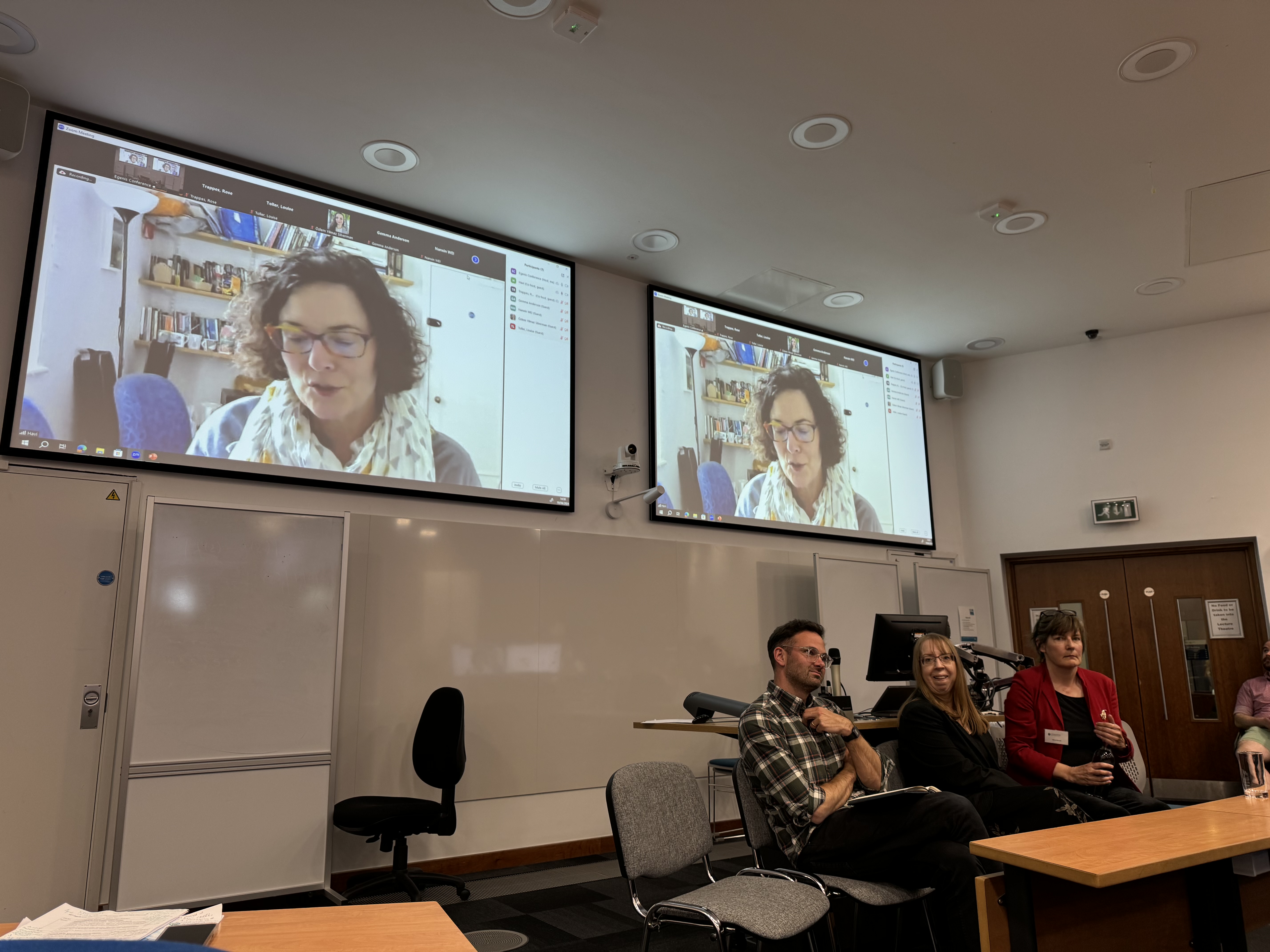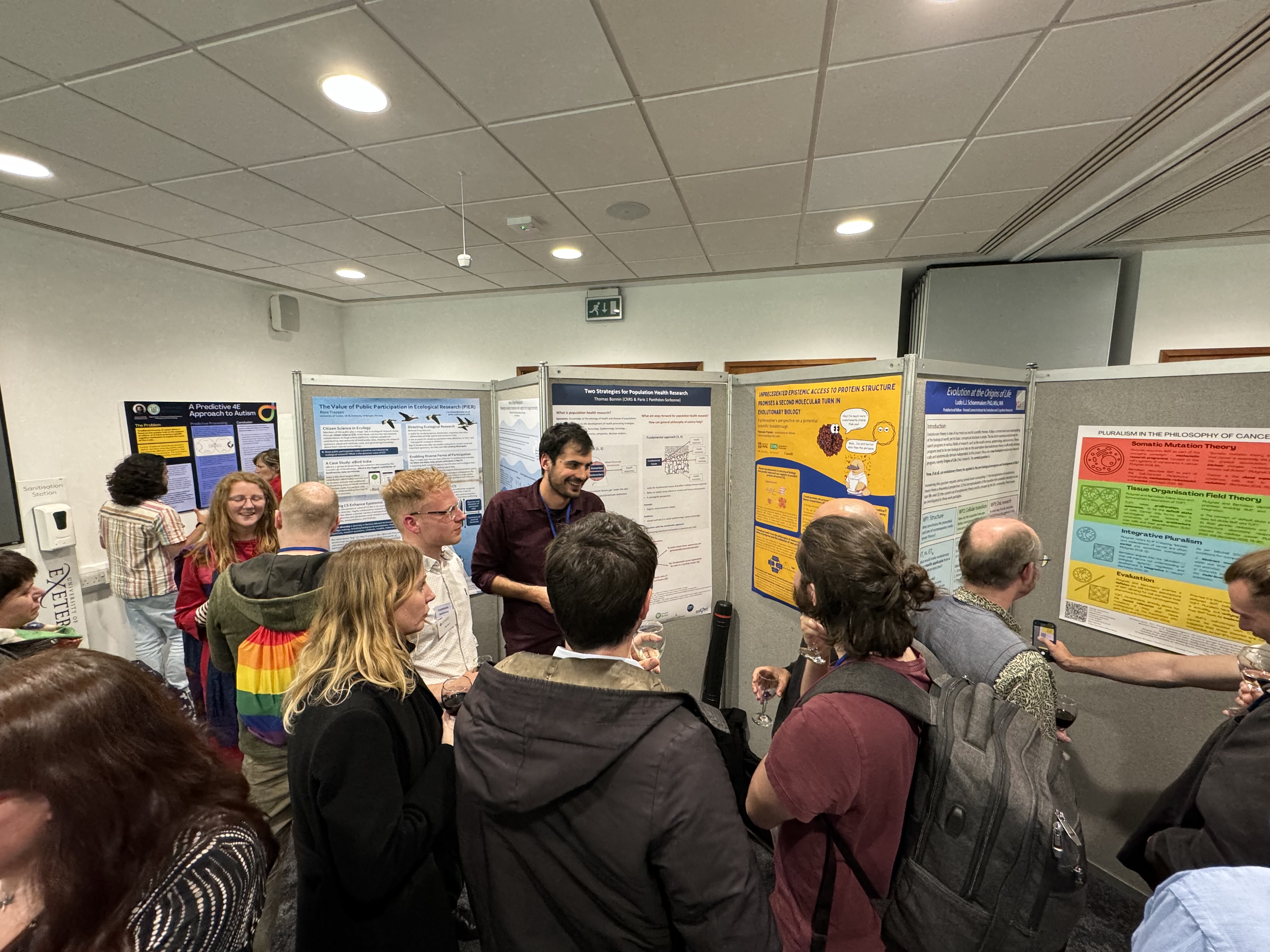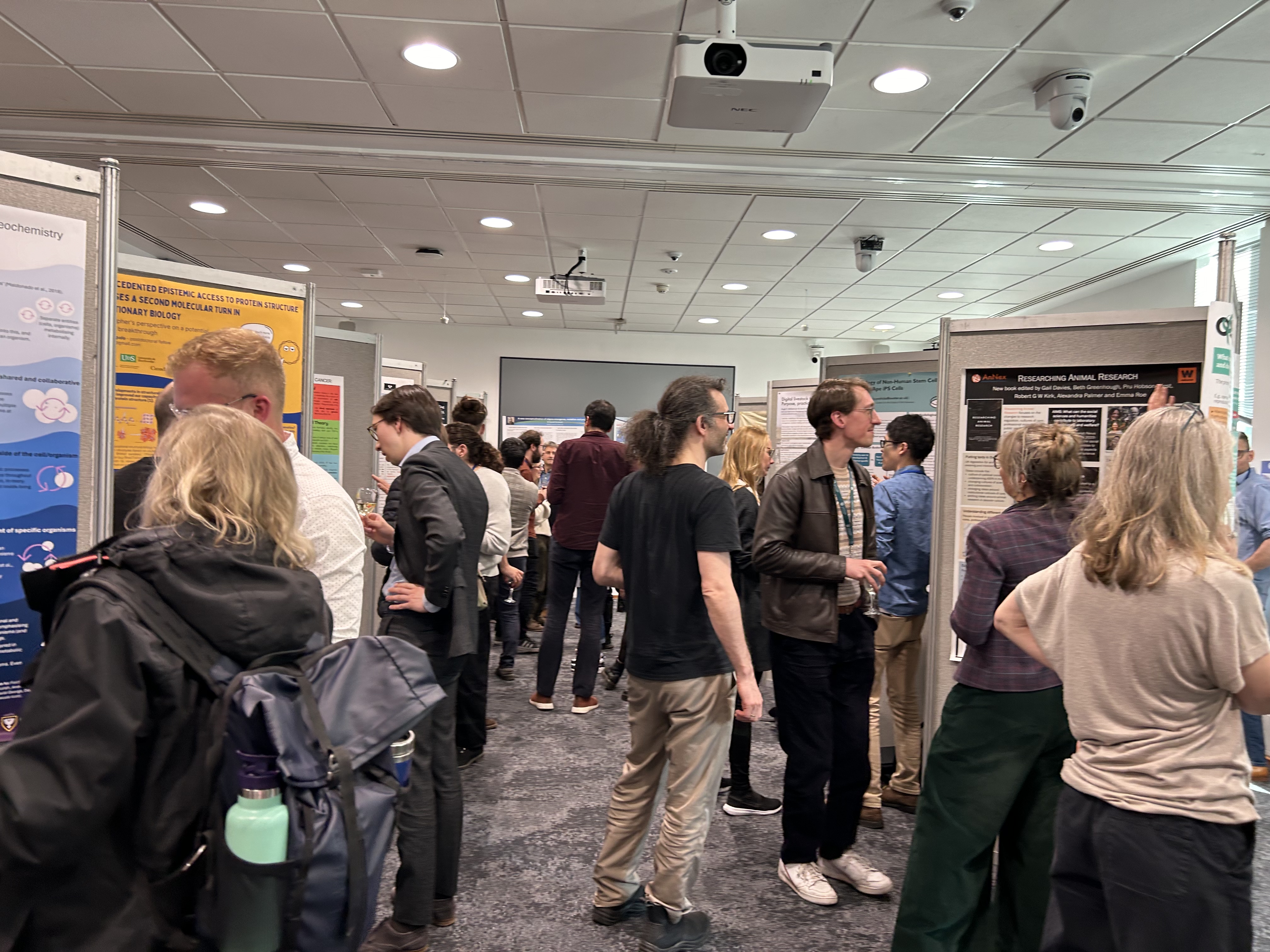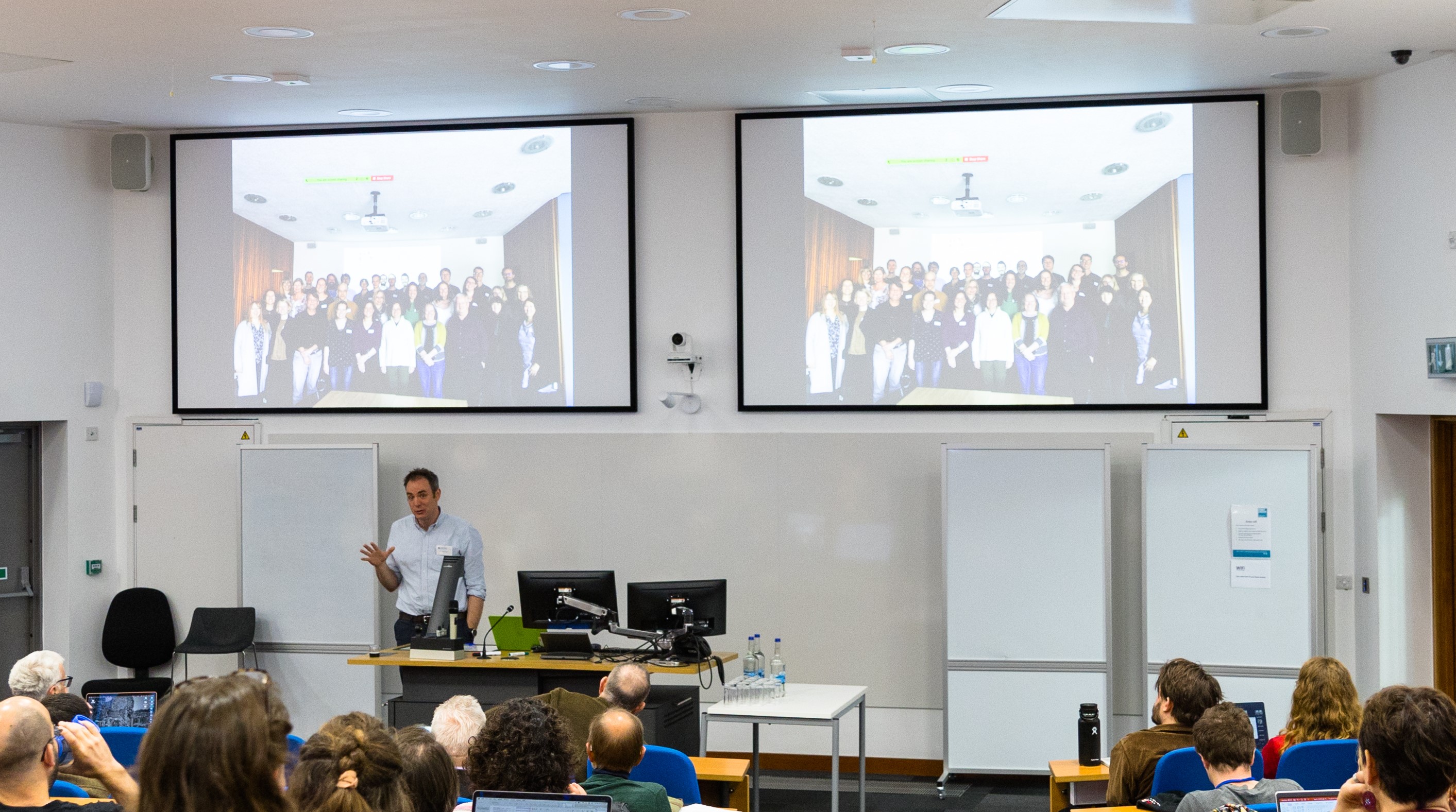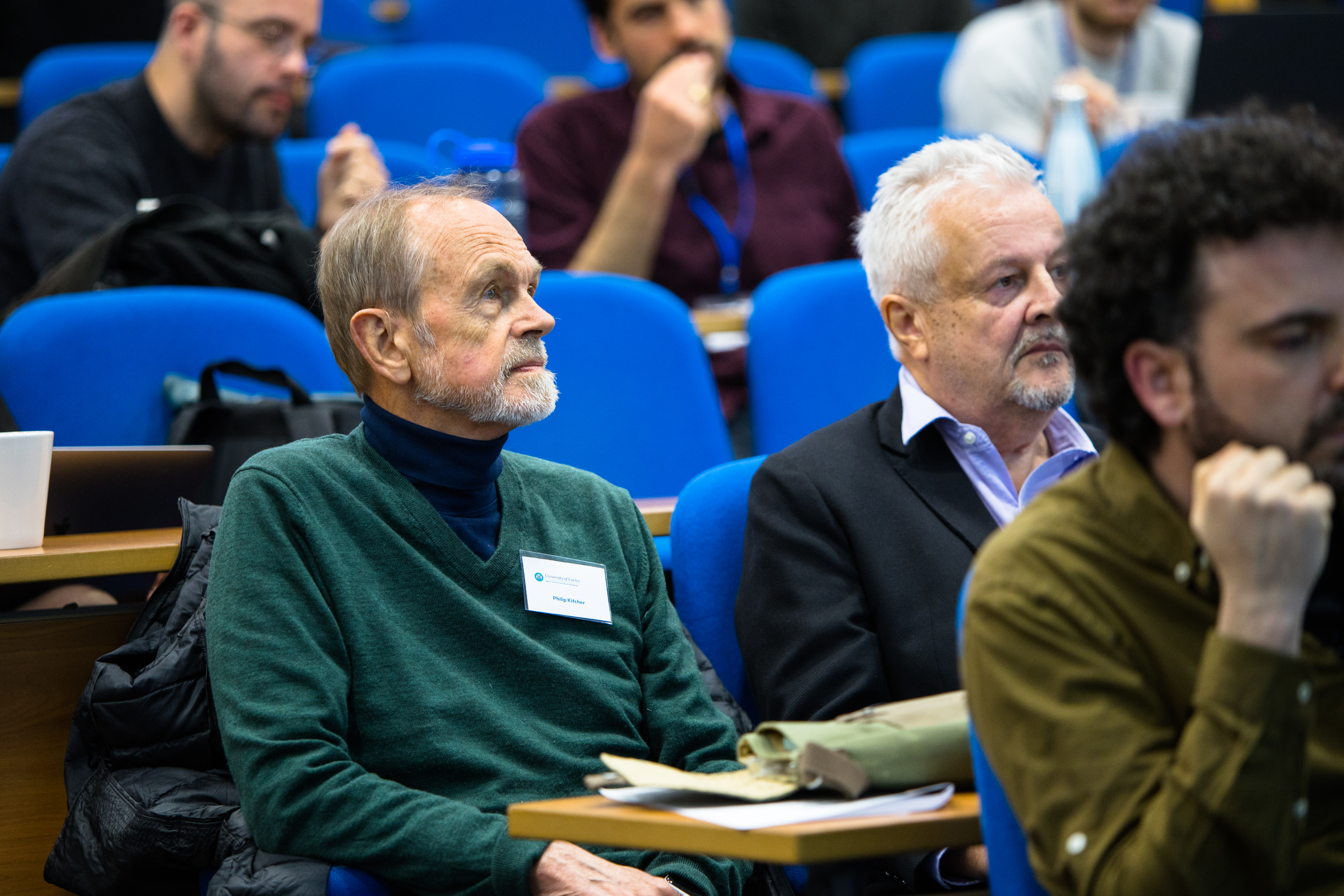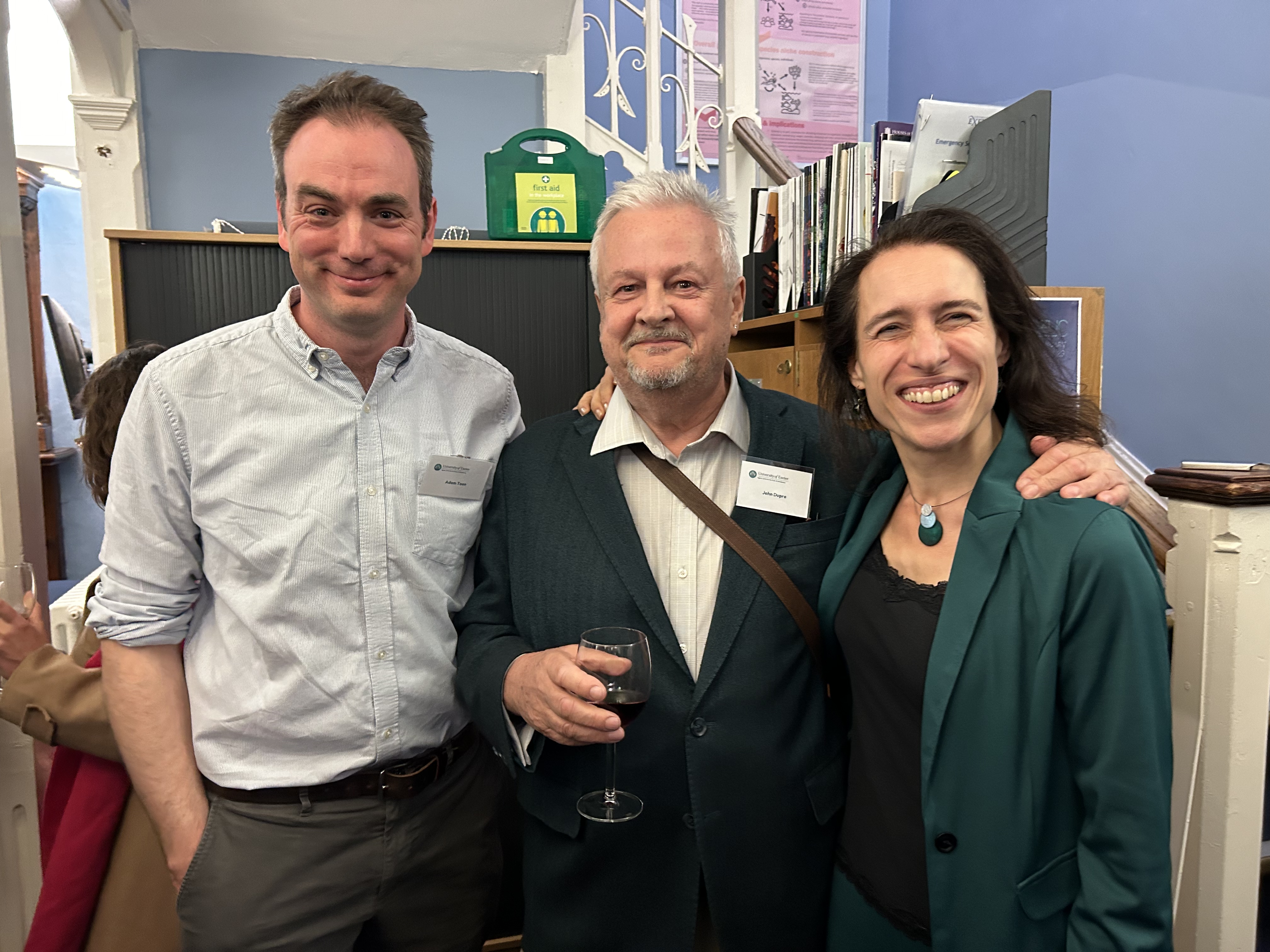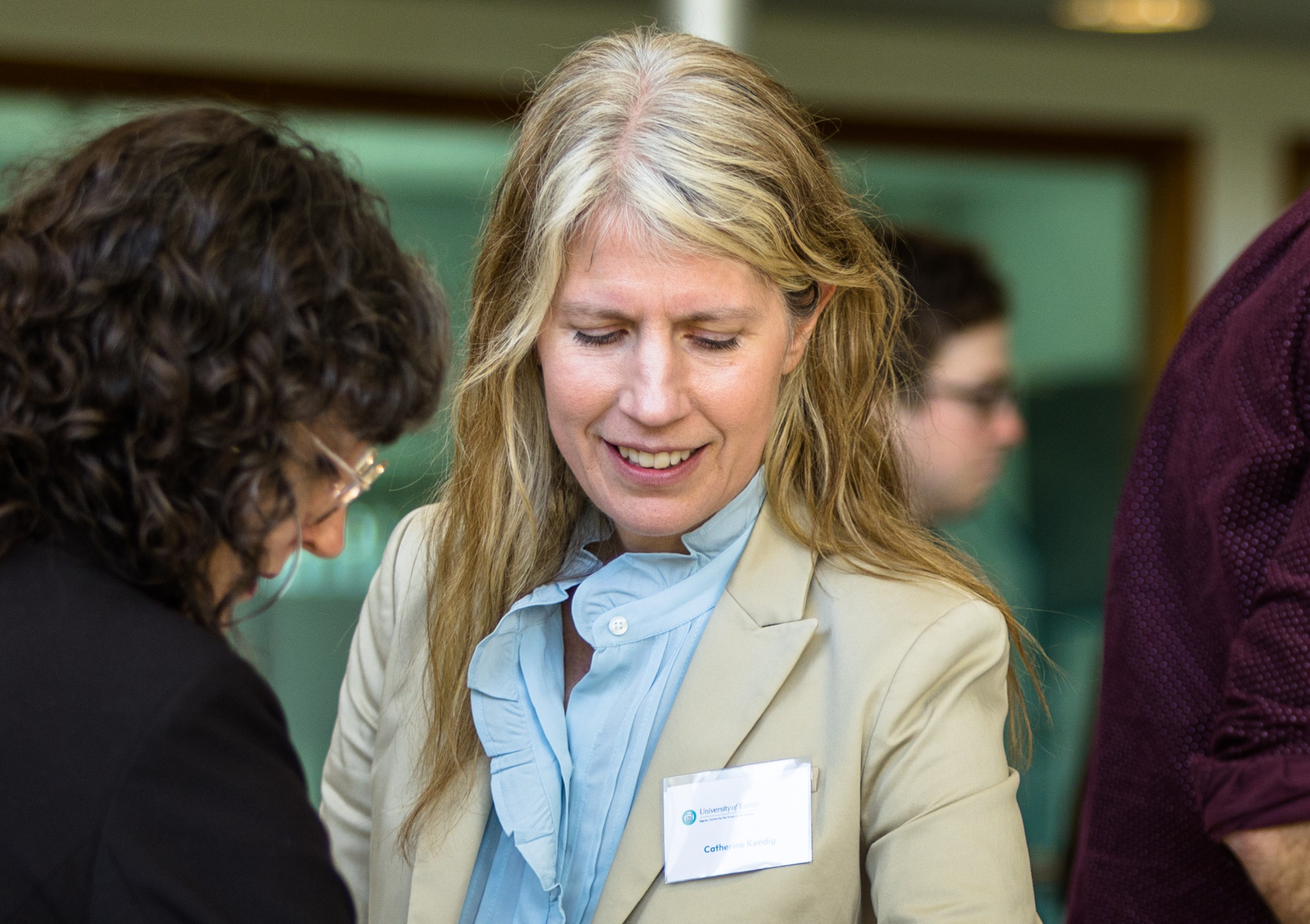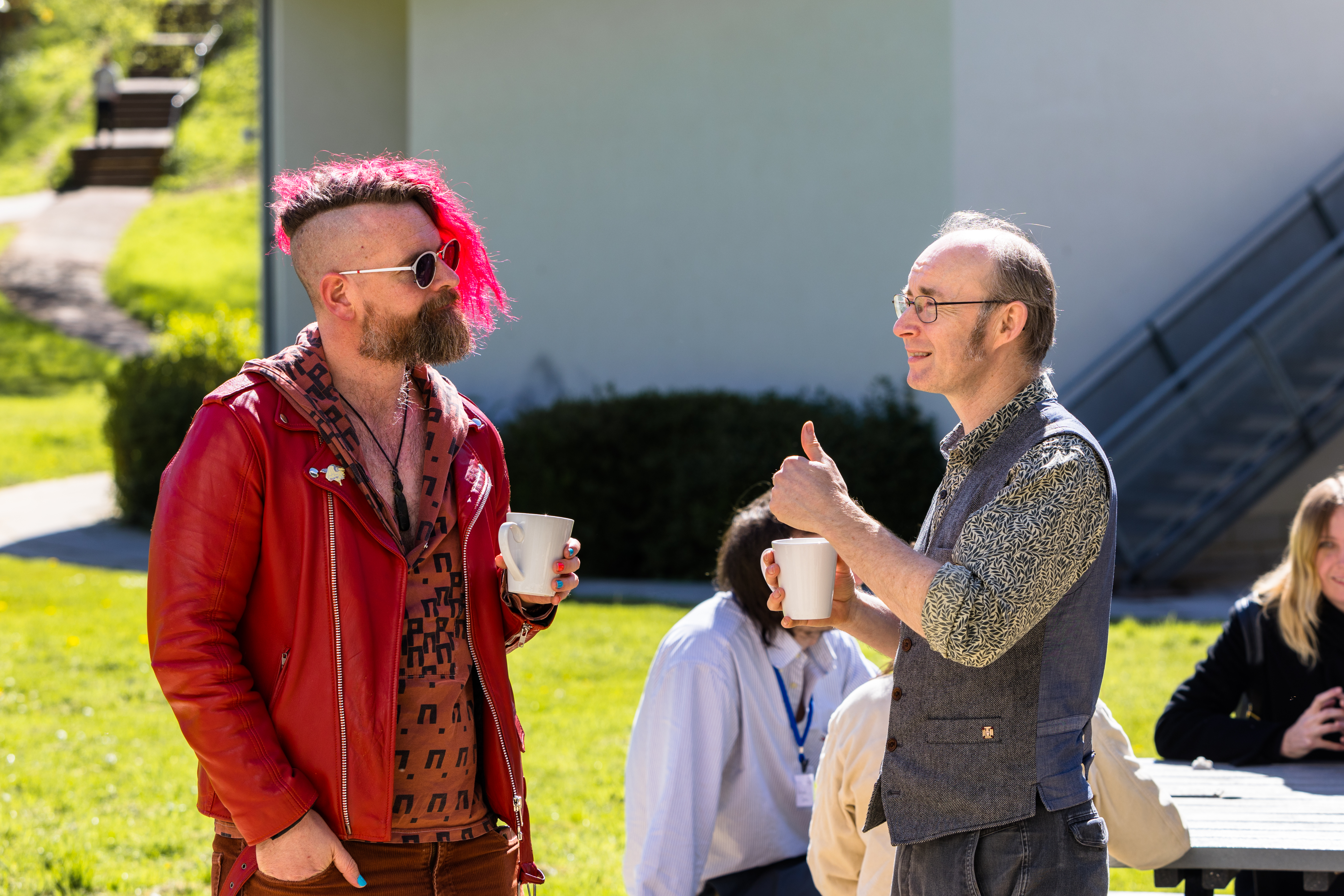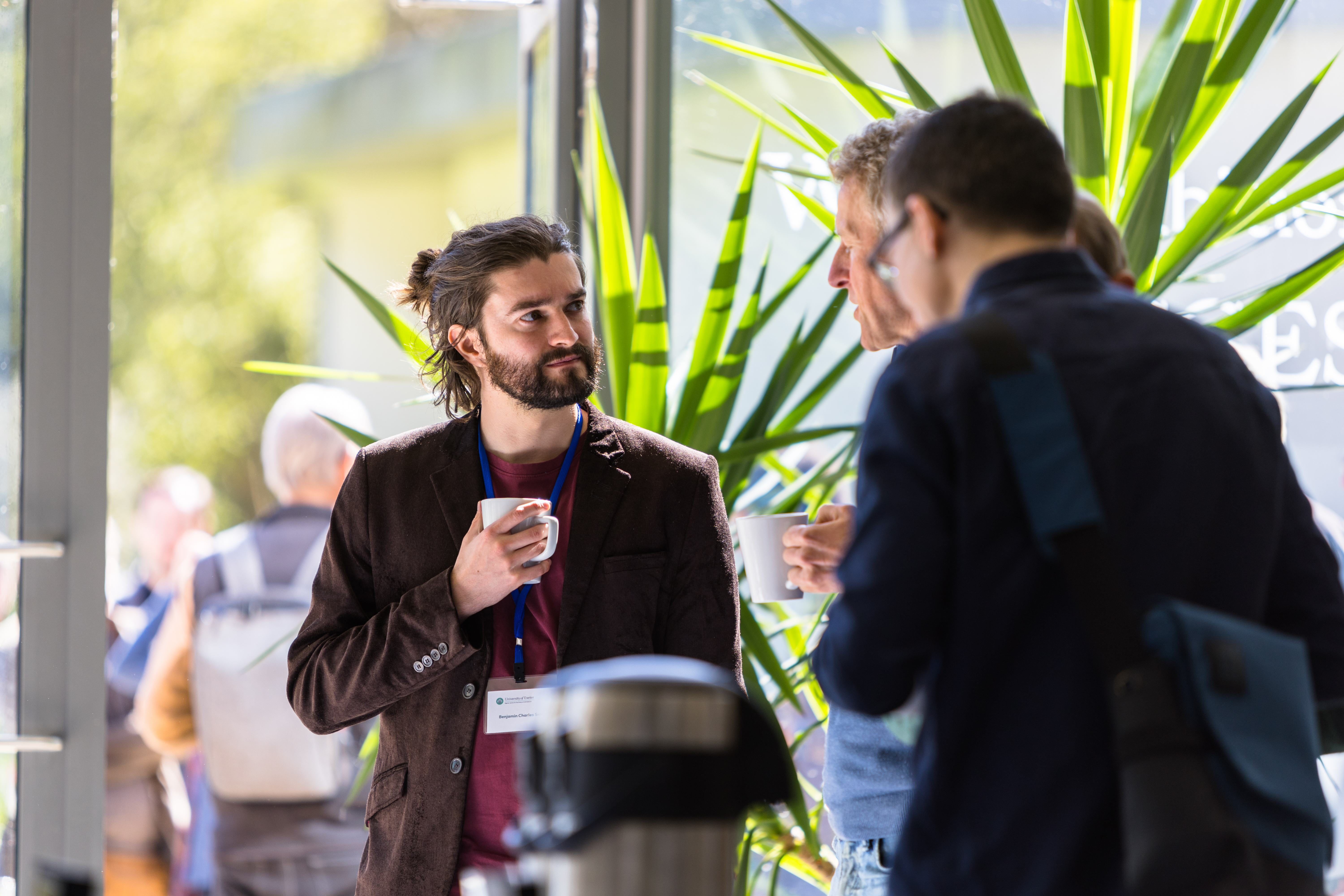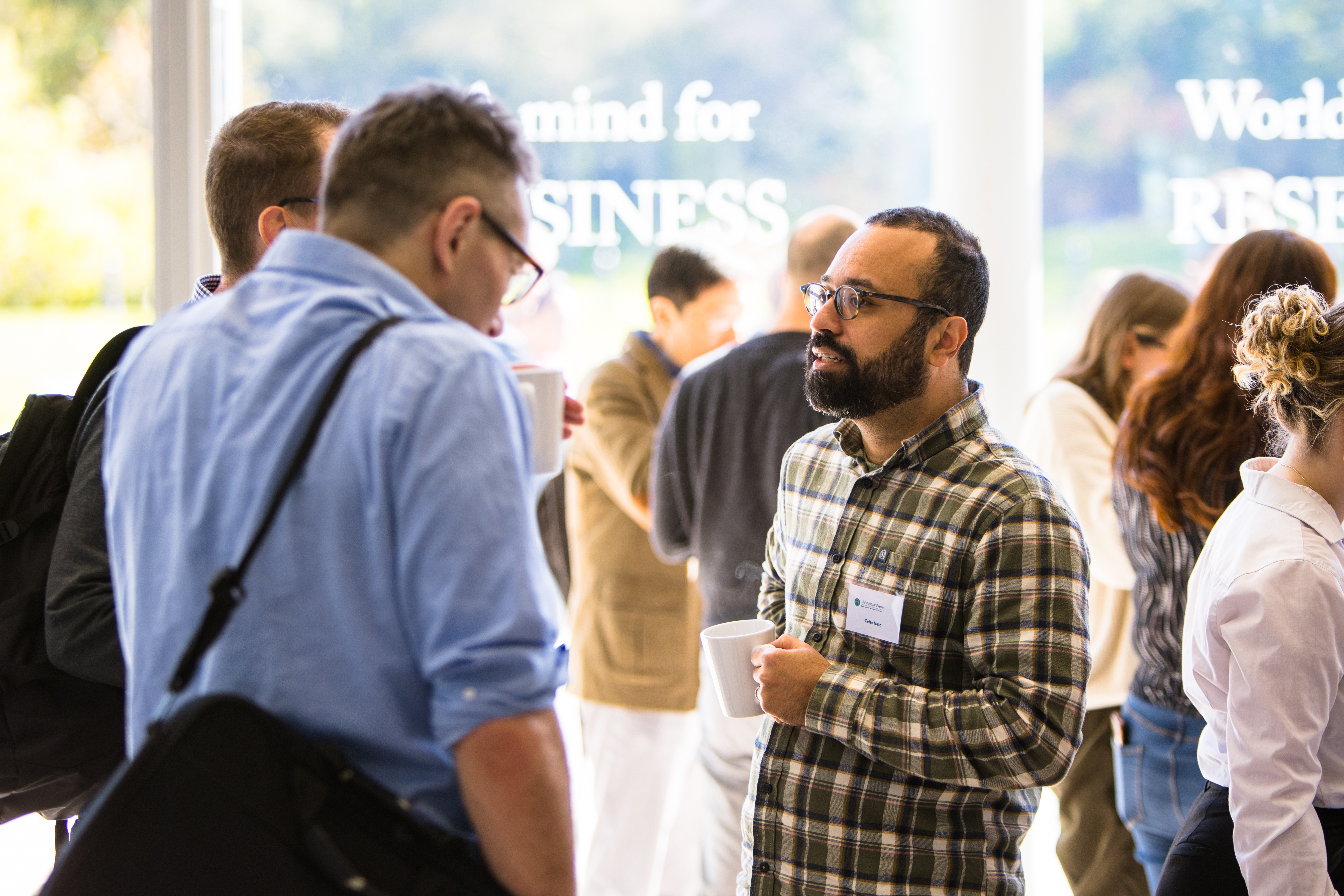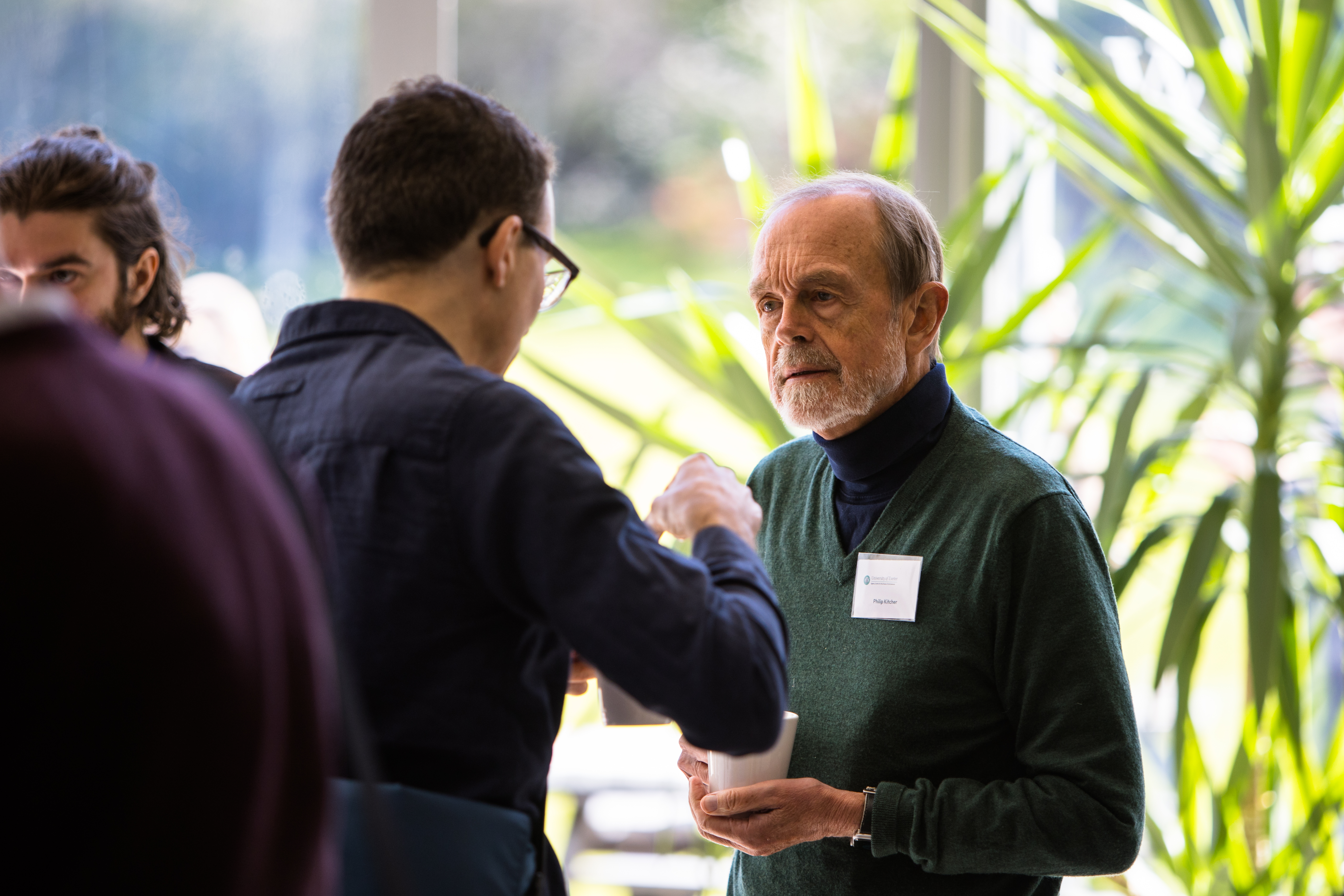Understanding Life in a Changing Planet
20+2 Years of Egenis, the Centre for the Study of the Life Sciences
Recordings uploaded and linked to talks for each day.
Conference reviews
Egenis conference 2024 review by Elis Jones (Konrad Lorenz Institute)
Programme
Marking the 20th anniversary of Egenis, this three-day event featured an exciting line-up of distinguished international guest speakers, alumni, and current members of Egenis. Speakers explored some of the key ideas developed at Egenis and their wider impact, as well as looking ahead to the main opportunities and challenges for the interdisciplinary studies of the life sciences in our changing planet. The event also honoured the achievements of Professor John Dupré, co-founder of Egenis and one of the world’s leading philosophers of biology.
The third day of the event featured each of Egenis’ research strands: Biology and Environment, Health and Biomedical Research, Mind, Body and Culture, and Data, Knowledge and Artificial Intelligence.
Speakers included:
Rachel Ankeny, Nancy Cartwright, Hasok Chang, Ford Doolittle, Jim Griesemer, Paul Griffiths, Scott Gilbert, Adrian Haddock, Jonathan Kaplan, Katie Kendig, Philip Kitcher, Tim Lewens, Alan Love, Thomas Pradeu.
Egenis conference 2024 - Programme and abstracts final
A day exploring the major philosophical themes of Professor Dupré’s distinguished career, and their significance for contemporary and future interdisciplinary studies of the life sciences.
| Welcome and Introduction | |
|
Hasok Chang (University of Cambridge) |
|
|
Nancy Cartwright (Durham University) |
|
|
Jonathan M Kaplan (Oregan State University) |
|
|
Tim Lewens (University of Cambridge) |
|
|
“And the wine is bottled poetry”: Dupré on Reductionism and the Mental |
Adrian Haddock (Universität Leipzig) |
|
Catherine Kendig (Michigan State University) |
|
|
Thou hast taught me, Silent River, Many a lesson, deep and long |
Scott Gilbert (Swarthmore College) |
|
The Mighty Worlds We Half Create Public Lecture |
Philip Kitcher (Columbia University) |
In celebration of Egenis’ twenty-year history friends and alumni explore some of the important impacts and ideas the centre has helped create, finishing with a poster session showcasing current work in the history, philosophy, and social studies of biology.
|
Sabina Leonelli |
|
|
Paul Griffiths (University of Sydney) |
|
|
Ford Doolittle (Dalhousie University) |
|
|
Roundtable on Prospects for Interdisciplinary Studies of Life Sciences |
Staffan Müller-Wille (University of Cambridge) Navigating the Challenges of Interdisciplinarity: Some Personal Lessons Dan Nicholson (George Mason University)From studies of to studies with Jane Calvert (University of Edinburgh) |
|
Thomas Pradeu (Boudeaux University) |
|
|
Case reports in times of pandemic: Evolving entities, evolving knowledge |
Rachel Ankeny (Wageningen University) |
|
Alan C Love (University of Minnesota) |
|
|
Entangled Banks of the River Reproduction: Thoughts on Thickety Nature, Science and Philosophy |
Jim Griesemer (UC Davis) |
|
John Dupré |
Current members of Egenis, as well as special guests, discuss major emerging topics in the social studies and philosophy of the life sciences. The discussion is organised along the four main strands of Egenis research activities.
|
Adam Toon |
|
|
Environments across scales, values and contexts The notion of an ‘environment’ is woven through scientific investigations, government policies and public imaginaries in a bewildering variety of ways. This panel and discussion brings together a diverse set of perspectives on what environments are, and why they matter, towards mapping similarities, differences and potential points of disagreement and tension. The session begins with a panel discussion. 5 panelists, who all interact with environments in different ways, from large-scale modelling, to public-facing heritage, to sociological and philosophical, will discuss how notions of environments play into their work. Several discussants from Egenis will then both pose questions and bring their own perspectives on the nature of the environment. Finally, the co-leads of the Biology & Environment strand will close with their own thoughts. Panel: Melanie Smallman (UCL, Dept of Science and Technology Studies), Rose Trappes (Exeter, Egenis), Sam Scriven (Jurassic Coast Trust), Arwen Nicholson (Exeter, Physics & Astronomy), Andy Flack, (University of Bristol, Department of History) Discussants: Astrid Schrader (Exeter, Egenis), Hugh Williamson (Exeter, Egenis/Business School), Oli Moore (Exeter, Egenis/CRPR) Commentators: Adrian Currie (Exeter) and Angela Cassidy (Exeter) |
|
|
Coffee break |
|
|
Automation in Biological Research: Niccolò Tempini (Exeter), Celso Neto (Exeter), James Wakefield (Exeter), Sara Green Commentators: Stephan Güttinger (Exeter) and Sabina Leonelli (Exeter) |
|
|
Lunch |
|
|
Stigma emergence: A new theory of stigma change over time: Hannah Farrimond (Exeter) Psychiatric fictionalism, diagnosis and epistemic injustice: Sam Wilkinson (Exeter) The dynamic lifecycles of psychiatric categories: Ginny Russell (Exeter) Commentator: Havi Carel (Bristol) |
|
|
Coffee break |
|
|
Panel 4: Mind and Culture theme (no recording) |
Boundaries of the mind, boundaries of the discipline In recent years, “4E approaches” have challenged the idea that to understand minds, we can focus exclusively on heads. These approaches instead defend a relational approach, one that sees minds as embodied, embedded, enacted, and maybe even extended beyond bodily boundaries and into the surrounding environment. Members of the “Mind and Culture” strand at Egenis have been at the forefront of this boundary-pushing work. They have applied 4E frameworks to diverse topics like emotions, perception and action, psychiatric disorder and classification, addiction, epistemology, modelling and scientific practice, technology and online sociality, religious cognition, artistic creativity, and musical experience. The influence of 4E frameworks continues to expand in philosophy, cognitive science, and beyond. This panel brings together leading scholars to discuss both their current work and future trends in 4E-inspired research. Giovanna Colombetti (Exeter), Tom Roberts (Exeter), Becky Millar (Cardiff) Commentators: Paul Griffiths (Sydney), Lee Hogarth (Exeter)
|
|
Closing Discussion |
Sabina Leonelli, Adam Toon |
|
End |
|
Associated activity
Exeter Science and Technology Studies (STS) Network
Egenis has a strong tradition of STS scholarship in conversation with philosophy and history of the life sciences across multiple generations. This extends beyond our home department of SPSPA and in recent years STS has been flourishing at Exeter across many more disciplines, and concerns beyond the life sciences. In response, this lively community has recently started coming together for monthly brownbag lunch sessions.
Organising committee
- Sabina Leonelli
- Adrian Currie
- Chee Wong
- John Dupré
- Adam Toon
- Stephan Güttinger
- Celso Neto



